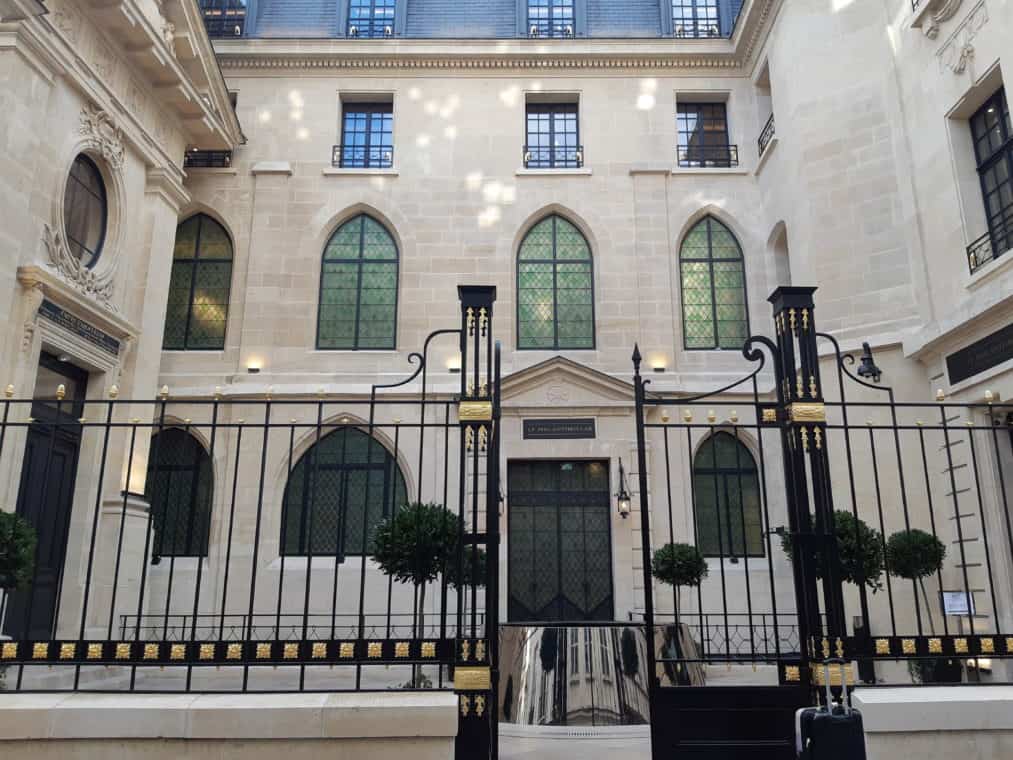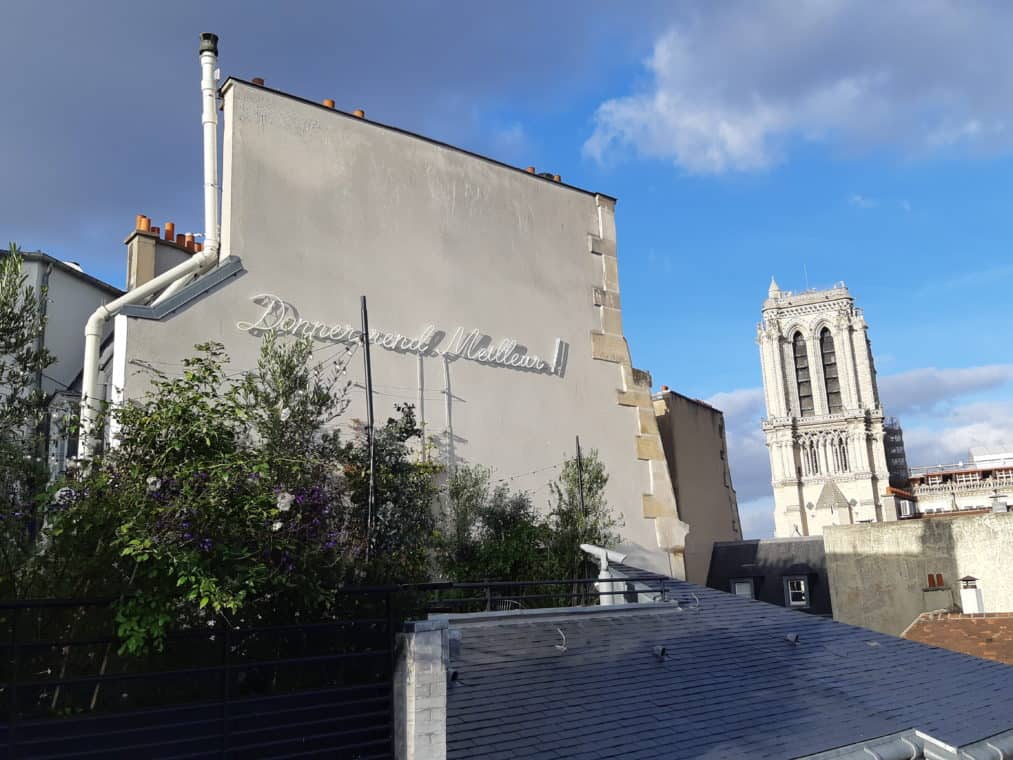Only 15% of taxable households in France declare an annual donation, but a new venture aims to raise this figure to 30% by 2030. Located in Paris, Philanthro-Lab seeks to “democratize the giving reflex” by bringing together researchers, social entrepreneurs, patrons, and project initiators to grow the philanthropic community in France.
France has often been a leader in philanthropic endeavours, contrary to assumptions that it lags behind. For example, French scholar Nicole Oresme was the first intellectual in Western Europe to unearth the term “philanthropia” from ancient Greek while translating Aristotle in the 14thcentury. A few years ago, France set up very favourable tax laws that encourage individuals and businesses to donate generously, compared to systems in other industrialized nations. More recently, the country’s philanthropic innovations are continuing with the birth of a unique concept: Philanthro-Lab, which could inspire similar initiatives around the world, perhaps even in Canada.
An innovative platform for the philanthropy ecosystem
Philanthro-Lab is an incubator of solidarity projects, carefully selected with the support of a scientific committee. It includes collaborative workspaces (120 coworking stations, private offices, meeting rooms), reception halls, and conference-debate rooms, as well as a multimedia recording studio and a free incubator. The lab is replete with a cycle of professional workshops and consulting services (law and taxation, communication, governance, fundraising, etc.) and first-rate training sessions and seminars. This all takes place in a wonderful architectural setting that can host temporary exhibitions and festive evenings. There’s no other place like it!
What is the aim of these resources and services? Simply to contribute to the development of a thriving philanthropy ecosystem in France and, of course, to inspire others to follow in its footsteps.
To reach this ambitious goal, Philanthro-Lab’s founders had the intuition to connect the pre-existing “bricks” from the already very mature philanthropic landscape that had been developed over the last three decades and to lay some complementary but essential bricks that were lacking, to be able to offer integrated services to those involved in France’s giving ecosystem.
Although there have long been French centres for philanthropy research (CerPhi, ESSEC Philanthropy Chair, Fondation de France’s Philanthropy Observatory, Philanthropy & Social Sciences Program, Recherches & Solidarités, etc.), numerous networks of professionals (Admical, Association française des fundraisers, Centre français des fonds et fondations, France générosités, Institut des dirigeants d’associations et fondations, etc.), and an energetic Coalition Générosité (generosity coalition) – now an umbrella of most of these organizations from various branches of the philanthropic sector that advocates for them and addresses government authorities with a united voice – there has never been a large physical site where these people could meet and dialogue on “neutral ground,” that is to say without automatically placing themselves under the aegis of a particular, inevitably influential, tutelary institution.
As a neutral and democratic forum for dialogue, Philanthro-Lab aims to provide certain services that are missing or are not sufficiently available to people working for the common good.
Moreover, in a sector in which most of the directors know one another personally and in which the majority of events are de facto reserved for professionals, there was also a lack of a place open to the outside world, accessible to the general public, in addition to the circles of experts who are, of course, important to the field but who do not make it possible to widely popularize the idea of philanthropy beyond “circles of insiders.” At the end of the first year of operation, this new gathering place is still sparking debate among the members of the philanthropic community, and there is some hesitation to adopt it. Many of the above-mentioned entities are already partners of Philanthro-Lab and its incubator, yet it will probably take time to convince people and to rally their goodwill.
As a neutral and democratic forum for dialogue, Philanthro-Lab also aims to provide certain services that are missing or are not sufficiently available to people working for the common good. For example, it can organize meetings between patrons and project initiators or offer a range of support services to social entrepreneurs and creators of associations or foundations, to strengthen their skills and increase their chances of success, particularly through its incubator that offers two programs: “philanthropic emergence,” aimed at patrons, and “acceleration,” dedicated to project initiators.
But Philanthro-Lab’s uniqueness mainly lies in the way it has matched the content and the container, by carrying out this atypical project in an impressively renovated and immensely elegant stone vessel.

An architectural gem
The one-of-a-kind Philanthro-Lab offers a sumptuous setting, in the Hôtel de la Bûcherie, a 600-year-old listed mansion with a rich history, once home to the capital’s first faculty of surgery. The site is centrally located, in the heart of Paris, just steps from the banks of the Seine and facing the sublime Notre-Dame cathedral, far from the cold and soulless business districts.
The winner of a competition launched by the municipal authority to “reinvent Paris,” Philanthro-Lab was inaugurated in the fall of 2021, after three years of colossal work representing a total investment of €40 million, which includes purchasing the building. As the spirit of the project was to “use beauty for good,” the renovation relied on ancestral know-how to showcase the building’s emblematic elements (a rotunda with a cupola, a monumental fireplace, stained glass and ironwork, an impressive stone pilaster in the vaulted basement, etc.) and innovations in a more contemporary style. The 2,000 square metres of total surface area now include a green rooftop terrace with stunning views of Notre-Dame. The premises are heated ecologically, via geothermal energy.
Philanthro-Lab’s initiator and main patron is Philippe Journo, a real estate developer who founded the Compagnie de Phalsbourg, which initially specialized in commercial real estate. The personal history of this philanthropical billionaire with a passion for architecture illustrates a meritocratic and early path to generosity. The son of a teacher and a small-scale retailer, who instilled in him the desire to work hard, he says he was marked by the power of volunteering at a very young age, notably by seeing volunteers reading and recording books to help his blind sister with her studies. She went on to become a law professor.
Philanthro-Lab’s mantra deserves to be shared far and wide: ‘Anyone can be a philanthropist, according to their means and the time they can give.’
In 2007, inspired by the Anglo-Saxon philosophy of giving back to society, he made the formal decision to donate 20% of his personal income and his company’s profits to charitable causes, including uplifting people through culture, people living with disabilities, heritage conservation, and community life. In the same spirit, he stood in solidarity with his brand partners during the 2020 health crisis by not requiring the stores in his shopping centres to pay owed rent during the closures due to the pandemic’s administrative lockdowns. His wife, Karine Journo, is actively involved in the philanthropic adventure of Philanthro-Lab, which they embarked on and navigate as a couple. Their motto? All causes are good.
Today, only 15% of taxable households in France declare an annual donation. Philanthro-Lab’s stated ambition is to raise this figure to 30% by 2030. While this may seem like a sizeable challenge, it is undoubtedly feasible given France’s vibrant philanthropic landscape. Donner rend meilleur (Giving makes you a better person) is its bold motto, which is inscribed on the building’s facade above the rooftop terraces. Science has not yet proven the veracity of this axiom, but it has proven that giving makes you happier.

An inspiration to others
Outside the United States, which is usually seen as the leader of philanthropic innovation in the world, many countries are contributing creatively in this sector and have come up with unique initiatives. One such example is Philanthropy House in Brussels. It is home to the headquarters of several organizations representing the generosity and civic engagement sector across Europe, offering a space for meetings, exhibitions, and more. In Canada, Philanthropy House in Montreal and Foundation House in Toronto each provide collaborative spaces and meeting opportunities to encourage sharing among peers in the philanthropic sector.
Beyond a comparable desire to stimulate growth in the national philanthropic sector, Philanthro-Lab has set a very high bar by posting its program ambitions in the hopes of bringing about a robust “ecosystem” and “democratizing the giving reflex” among the French people by raising awareness in children through playful and educational approaches. The success of this initiative would practically revolutionize the sector. We should, then, watch the project’s evolution closely since it could be replicated in countries that do not yet have such a platform. After all, Philanthro-Lab’s mantra deserves to be shared far and wide: “Anyone can be a philanthropist, according to their means and the time they can give.”
Editor’s note: This article was updated on October 28, 2022, to adjust and correct some factual details and to reflect recent developments of Philanthro-Lab.


